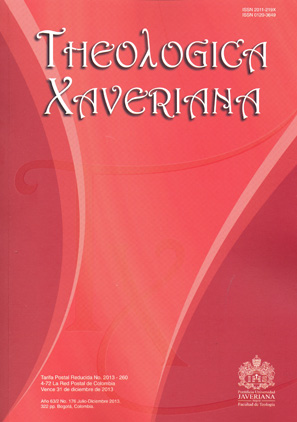Abstract
The contribution of the Second Vatican Council becomes evident in the ecclesiastic change that gave rise to the work by the Church in Latin America and the Caribbean. The starting point was the reality of church communities that have gone through the processes of the Church as the people of God, the Church of the poor, and the Church of communion and participation in the daily life of its members. An heir to the Council through Liberation Theology, the Church in Latin America does not only express itself in the documents by the four episcopal conferences carried out so far after the Second Vatican Council (Medellín, Puebla, Santo Domingo and Aparecida), but in the testimony of Christians, active agents in the life of the Church.
This journal is registered under a Creative Commons Attribution 4.0 International Public License. Thus, this work may be reproduced, distributed, and publicly shared in digital format, as long as the names of the authors and Pontificia Universidad Javeriana are acknowledged. Others are allowed to quote, adapt, transform, auto-archive, republish, and create based on this material, for any purpose (even commercial ones), provided the authorship is duly acknowledged, a link to the original work is provided, and it is specified if changes have been made. Pontificia Universidad Javeriana does not hold the rights of published works and the authors are solely responsible for the contents of their works; they keep the moral, intellectual, privacy, and publicity rights.
Approving the intervention of the work (review, copy-editing, translation, layout) and the following outreach, are granted through an use license and not through an assignment of rights. This means the journal and Pontificia Universidad Javeriana cannot be held responsible for any ethical malpractice by the authors. As a consequence of the protection granted by the use license, the journal is not required to publish recantations or modify information already published, unless the errata stems from the editorial management process. Publishing contents in this journal does not generate royalties for contributors.


